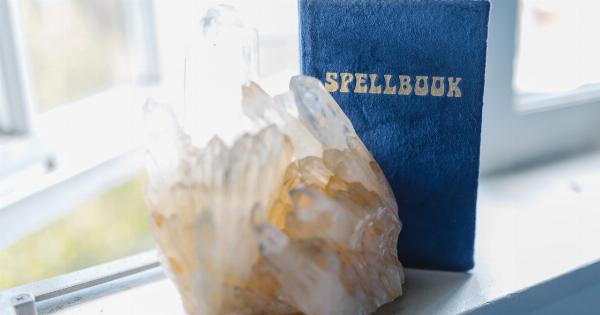Self-esteem is an essential aspect of our psychological well-being. It is the subjective evaluation of our worth and value as individuals.
When our self-esteem diminishes, doubt intensifies leading to various negative consequences on our mental and emotional health. In this article, we will explore the relationship between self-esteem and doubt, and how the decline in self-esteem can amplify feelings of uncertainty and hesitation in different areas of our lives.
The Nature of Self-Esteem
Self-esteem is not a fixed trait but rather a dynamic and fluid construct that can fluctuate throughout our lives. It is influenced by various factors such as achievements, relationships, societal norms, and personal experiences.
When our self-esteem is high, we tend to feel more confident, content, and capable of tackling life’s challenges. On the other hand, when our self-esteem diminishes, doubt and insecurity take center stage, affecting how we perceive ourselves and our abilities.
The Downward Spiral of Diminished Self-Esteem
When our self-esteem starts to decrease, doubt progressively intensifies, creating a vicious cycle that can be difficult to break.
This downward spiral often begins with negative self-perception fueled by self-criticism, comparing oneself to others, or internalizing external judgments. As doubt grows stronger, it seeps into various aspects of our lives, impacting our relationships, decision-making, and overall sense of self-worth.
Doubt in Relationships
When our self-esteem diminishes, we may find ourselves doubting our worthiness of love and affection in our relationships. We may question whether we are truly deserving of the love and care provided by our partners, friends, or family members.
This doubt can lead to a fear of rejection, causing us to become overly dependent on others’ validation and approval. Consequently, these doubts may strain our relationships as we constantly seek reassurance and validation.
In addition, diminished self-esteem can lead to the belief that we are not good enough for our partners or friends. This self-doubt can trigger feelings of jealousy and insecurity, damaging the trust and intimacy within the relationship.
Ultimately, this self-imposed doubt can lead to a breakdown in communication and connection.
Doubt in Academic and Professional Settings
Diminished self-esteem can significantly impact our performance and success in academic and professional settings. When we doubt our capabilities and intellect, we may second-guess our abilities to excel in our studies or work.
This self-doubt can hinder our motivation, productivity, and overall performance.
Moreover, self-esteem plays a crucial role in overcoming challenges and setbacks. When our self-esteem diminishes, we may perceive any failure or mistake as confirmation of our incompetence, leading to a cycle of self-sabotage and avoidance.
The fear of failure and the belief that we are not capable of achieving success can prevent us from taking risks, pursuing opportunities, and reaching our full potential.
Doubt in Decision-Making
When self-esteem diminishes, doubt infiltrates our decision-making process. Indecisiveness becomes a common struggle as we question our judgment and fear making the wrong choices.
We may become paralyzed by the fear of failure or rejection, leading to a tendency to overanalyze and seek external validation, further fueling our doubt.
In addition, diminished self-esteem can lead to a lack of confidence in our ability to make decisions autonomously. We may rely excessively on others’ opinions and avoid taking responsibility for our own choices, further eroding our self-esteem.
This self-doubt can hinder personal growth and prevent us from learning through trial and error.
Negative Internal Dialogue
One of the most prominent manifestations of doubt when self-esteem diminishes is negative self-talk. Our internal dialogue, influenced by self-doubt, becomes harsh, critical, and self-deprecating.
We may constantly berate ourselves for our perceived flaws, shortcomings, and past mistakes, reinforcing our negative self-perception.
This negative internal dialogue can have severe consequences on our mental and emotional well-being. It can erode our self-confidence, increase anxiety and depression, and hinder our ability to develop self-compassion and self-acceptance.
Ultimately, this ongoing self-critical narrative intensifies doubt, trapping us in a cycle of negativity.
Breaking the Cycle: Building Self-Esteem and Reducing Doubt
While the journey of rebuilding self-esteem and reducing doubt can be challenging, it is certainly possible with dedication and self-reflection. Here are some strategies to break the cycle:.
1. Practice Self-Compassion
Developing self-compassion involves treating yourself with kindness, understanding, and acceptance. Challenge your self-critical thoughts and replace them with self-affirming statements.
Treat yourself as you would a close friend or loved one, offering support and encouragement.
2. Surround Yourself with Supportive People
Build a network of supportive and encouraging individuals who uplift and believe in you. Surrounding yourself with positive influences can counteract the negative self-perception and doubts that fuel your diminishing self-esteem.
3. Celebrate Small Achievements
Recognize and celebrate even the smallest accomplishments. By acknowledging your own progress and strengths, you can gradually enhance your self-belief and self-esteem.
4. Challenge Self-Limiting Beliefs
Identify the negative beliefs that contribute to your self-doubt and challenge their validity. Question the evidence supporting these beliefs and consider alternative perspectives that are more aligned with your abilities and potential.
5. Set Realistic Goals
Break down your larger goals into smaller, manageable steps. By setting achievable goals, you can build confidence in your abilities as you make consistent progress towards your aspirations.
6. Seek Professional Help
If self-doubt and diminishing self-esteem significantly impact your daily life and well-being, consider seeking assistance from a mental health professional.
They can provide support, guidance, and techniques to help you rebuild your self-esteem and find healthier ways to cope with doubt.
Conclusion
When our self-esteem diminishes, doubt takes hold, infiltrating different areas of our lives.
Whether in relationships, academic or professional settings, or decision-making, diminished self-esteem undermines our confidence, hinders our growth, and perpetuates negativity.
However, by practicing self-compassion, surrounding ourselves with support, celebrating achievements, challenging self-limiting beliefs, setting realistic goals, and seeking professional help when necessary, we can break free from this cycle and rebuild our self-esteem, reducing doubt and embracing our true potential.






























